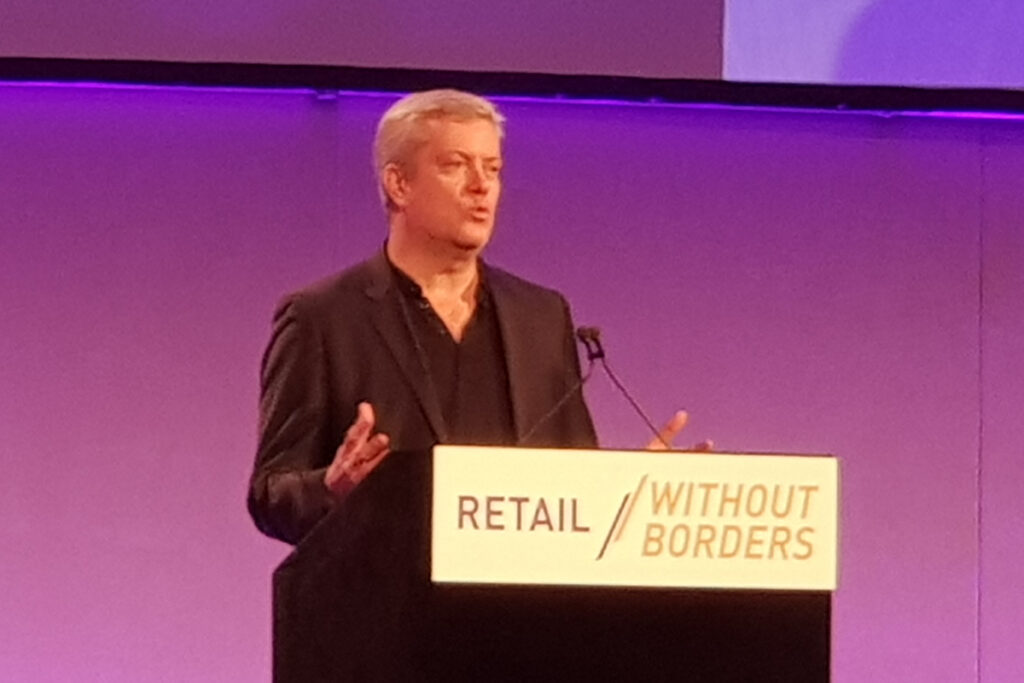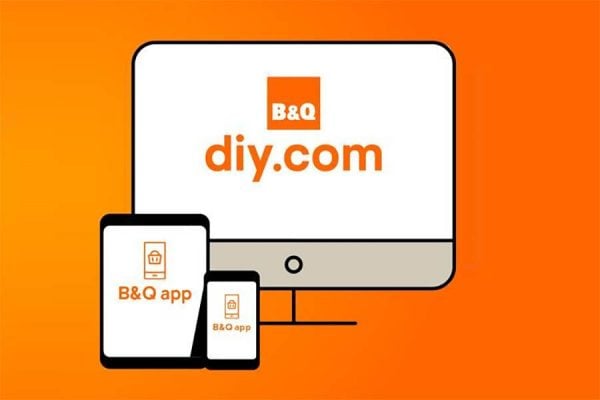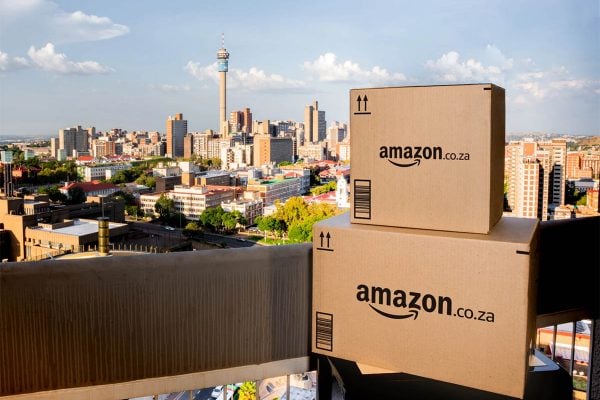Porter Erisman was at Alibaba at the beginning, just as the company moved out of a former English teacher and Alibaba founder Jack Ma’s apartment into their first business premises. Today he spoke at Retail Without Borders talking bout Six Billion Shoppers and the opportunity for marketplace and merchants in China.
Porter kicked off by pointing out that the problem with retail in the west is that for every job created online many more are lost from the high street. However in emerging markets where typically there are large numbers of ‘mom and pop’ stores it’s the opposite – ecommerce is creating jobs that didn’t exist before.
Porter suggests that to discover the history of ecommerce you should look at the west – Europe the US and maybe Japan, but to foresee the next 20 years of ecommerce we should take a closer look at China.
In China, mobile payments has already become a way of life – even small outlets no longer accept cash and Alipay is the default for payments for everything right down to buying a coffee. Singles Day is of course massive in China, many times bigger than Black Friday, and again a majority of purchases are made on mobile. To put it into perspective, Singles Day is at least four times bigger than the entire Black Friday weekend in the US, demonstrating the opportunity for retailers in China.
When Alibaba was founded less than 1% of the country were using the Internet – many people didn’t even have credit cards and combined with poor logistics and government controls many people said that ecommerce simply wouldn’t work in China. Alibaba was founded as a B2B business designed to help small traders do business. Then when eBay came to China, Alibaba launched TaoBao to defend against eBay encroaching on their business.
When brands started paying attention to TaoBao, they started to approach Alibaba but they wanted differentiation from the smaller merchants and so Tmall was launched. In China, Tmall become a place where consumers would get to know a brand and so become a branding exercise for companies in it’s own right. Companies have launched their brand on Tmall in China bet it’s a very human process with links to talk to a human – the shopping experience is more akin to walking into a physical store and being able to talk to an assistant rather than in the West were communications are automated with perhaps slow email at best or robot chat for immediacy.
Key lessons learnt from China
- Forget the US model as it won’t work in China, start from the local customer and work backwards.
- The marketplace model best fits emerging markets – no one retailer can solve all the local issues.
- Marketplace operators need to allow more room for brand building within marketplace.
- Humans are still necessary for sales and service.
- In emerging markets, the battle is between ecosystems – not just companies.
- Leapfrog – In an emerging market you can skip 100s of year’s of retail innovation
- Smartphone adoption is the key driver of ecommerce growth – consumers may have never seen a computer!
- Emerging markets will be the first cashless societies
- Today’s ecommerce leader can be tomorrow’s FinTech leader – for example Alibaba’s ANT Financial and AliPay
Big trends in emerging markets
India is a populous country but often the spending power is not huge from individual consumers. Porter however says that India has become the next China with potential for massive growth. Companies like Amazon, Flipkart and Alibaba are investing massive amounts in India and will likely make significant losses – but use their investments to boost your own business.
Indonesia has become the hot market in South Asia and is really interesting as you see some of the same cultural trends from China appearing in Indonesia – for instance social is huge as people love connecting with Instagram and so social commerce is really taking off. The thing that’s held South East Asia back is infrastructure but it’s likely you’ll see cross border more than local players.
Latin American, even Mexico, has lagged in ecommerce so far, but this is the market Porter sees as the most interesting due to the size of the area and only two languages to cope with. Brazil is starting to be an established ecommerce country, but the rest of Latin America is a largely untapped market.
Western models haven’t worked well in Africa but countries like Nigeria is interesting as a gateway to West Africa. Kenya and South Africa are also worth watching but currently a model that does work hasn’t been nailed.
The biggest trend of all is cross border trade. The Internet has no bounds and a consumer in China can be sitting on their mobile making a purchase from the West. Of course a local marketplace will always win, but making products listed in the West available for purchase anywhere in the world will still pay dividends.










